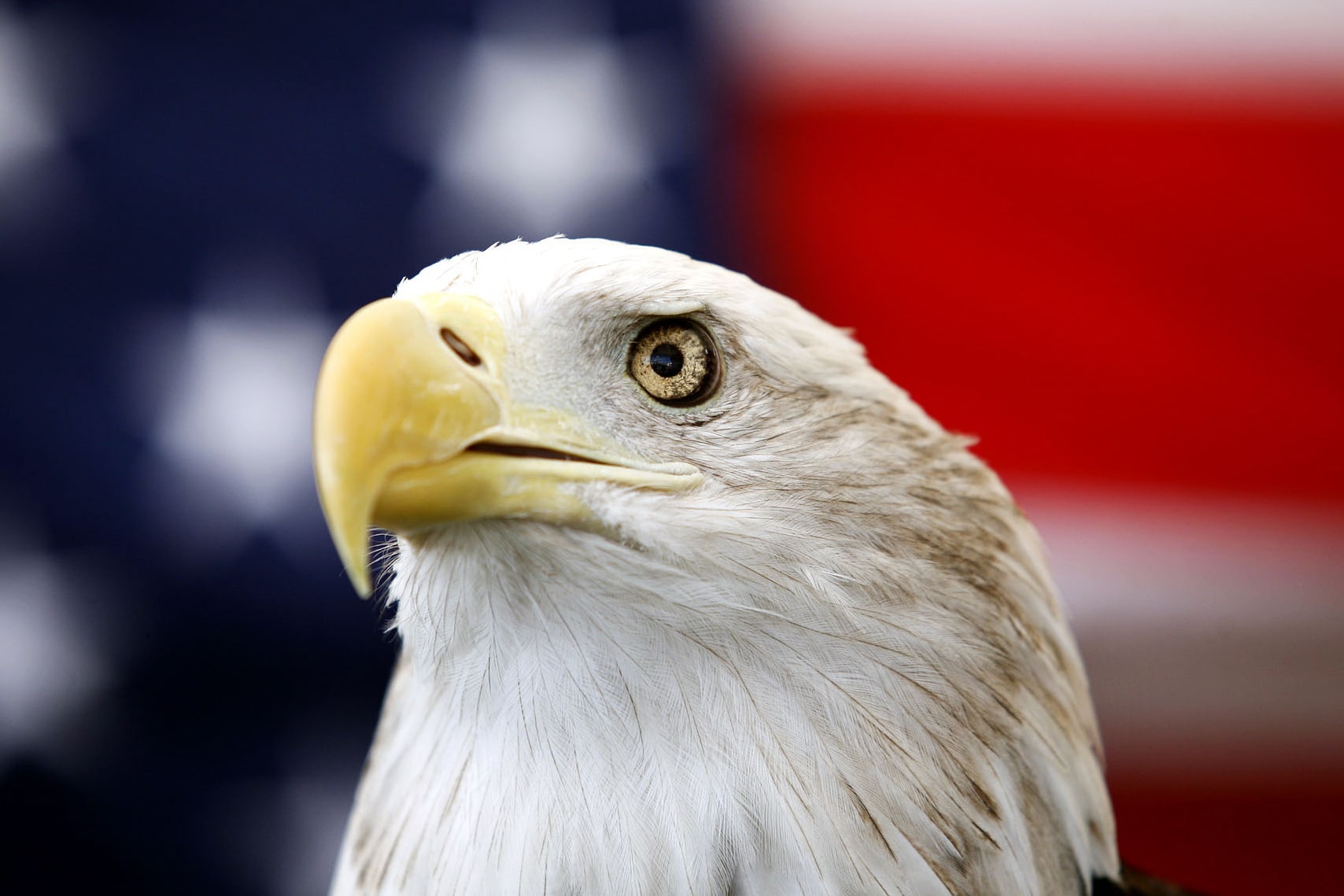
Uncle Sam, a 25-year-old bald eagle, sits on his perch in front of a US flag before the Extreme Raptors Show at the Permian Basin Fair in the Ector County Coliseum fairgrounds in Odessa, Texas, on Wednesday, Sept. 11, 2013. – The bald eagle, a symbol of the power and strength of the United States for more than 240 years, earned an overdue honor on Tuesday: It officially became the country’s national bird. President Joe Biden signed the legislation sent to him by Congress that amends the United States Code to correct what had long gone unnoticed and designate the bald eagle — familiar to many because of its white head, yellow beak, and brown body — as the national bird. (Edyta Blaszczyk/Odessa American via Associated Press)
WASHINGTON — The bald eagle, a symbol of the power and strength of the United States for more than 240 years, earned an overdue honor on Tuesday: It officially became the country’s national bird.
President Joe Biden signed the legislation sent to him by Congress that amends the United States Code to correct what had long gone unnoticed and designate the bald eagle — familiar to many because of its white head, yellow beak, and brown body — as the national bird.
The bald eagle has appeared on the Great Seal of the United States, used in official documents, since 1782, when the design was finalized. The seal is made up of the eagle, an olive branch, arrows, a flag-like shield, the motto “E Pluribus Unum,” and a constellation of stars.
READ: ‘Lady of the US’ lays eggs at National Arboretum
Congress that same year designated the bald eagle as the national emblem, and its image appears in a host of places, ranging from documents and the presidential flag to military insignia and US currency, according to USA.gov.
But it had never been officially designated to be what many had just assumed it was — the national bird.
The bald eagle is indigenous to North America.